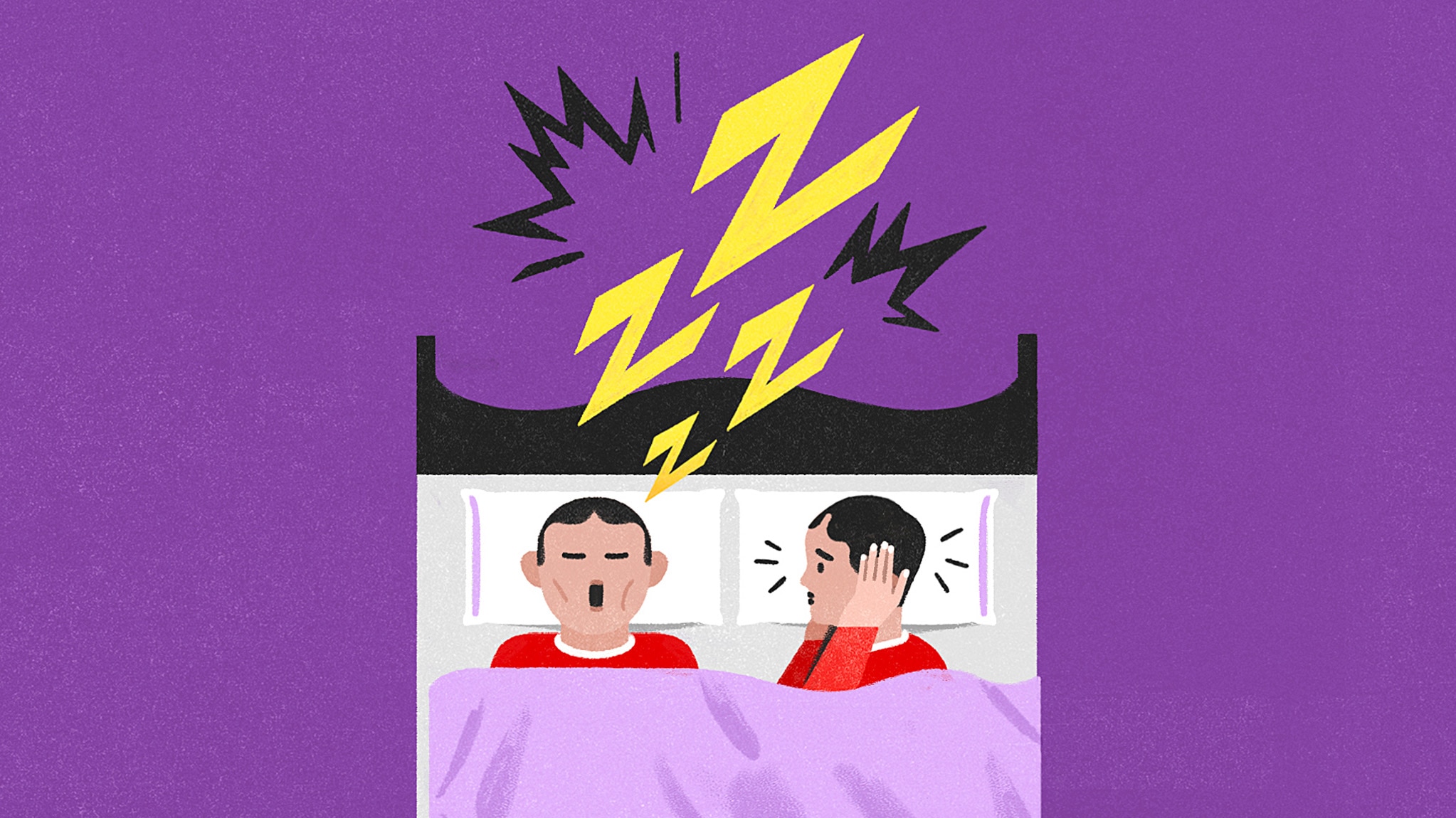Help with managing caregiver burnout
Taking care of someone else is a wonderful endeavor — but it’s vital to take care of yourself, too. Here’s where to start.

The care and companionship a caregiver gives to someone is a priceless gift. The work can bring its own rewards. But it can also bring stress, both emotional and physical — and it’s important to manage that before it turns into burnout.
About two-thirds of caregivers report some kind of mental distress, and nearly one in four say caregiving has taken a toll on their own health. The tips below can help to focus and recharge.
In this article:
Managing stress as a caregiver
Unmanaged stress can hurt a person’s health. Fortunately, there are ways to help manage it with a few tricks.
- Set goals. One big caregiver challenge is too many tasks. They can ask themselves, “What’s the one thing that has to get done today?” Then, create some grace around what’s realistic. And if it’s helpful, set up a daily routine to help them and their charge set expectations and stay on track.
- Be realistic about the situation. Learn what can and can’t be done about a person’s condition. A caregiver should take it one day at a time, reminding themselves that they are doing the best they can.
- Learn to say no. Are requests outside caregiving also adding undue stress? Caregivers can delegate some tasks to family, friends or coworkers to give more room to breathe. Chances are they’d do the same.
- Take a break. Look into respite care (in home or out), adult care centers and programs, and short-term nursing homes. These options can give some time, even just a few hours, to help recharge.
Taking time for themselves
As the saying goes, you can’t pour from an empty cup. Managing burnout requires a person to put energy back into themselves, too.
- Care for themselves — first. A caregiver should get good sleep and regular exercise (even if it’s just walking) as well as eat well and drink plenty of water. They should keep up to date with their own vaccinations and medical appointments. And they should always tell their health care provider if they have symptoms of burnout, such as sleeplessness, anxiety or feelings of hopelessness.
- Ask for (and say yes to) help. Other people in a caregiver’s life may want to pitch in but don’t know how. Make a list of specific tasks and see which they can take on. Perhaps it’s making a meal once a week, giving a ride to appointments, picking up supplies or spending a few hours with their charge as they do other things. They might coordinate their volunteers through free online tools.
- Practice relaxing. Deep breathing, meditation, progressive muscle relaxation and yoga are tried-and-true de-stressors. Caregivers can look for how-to classes or guides online. Humor also does wonders for the body and soul. They can watch funny videos, TV shows — or whatever makes them laugh.
- Create a social network. Caregivers should stay in touch — in person or virtually — with family and friends who support them. They can schedule time weekly to meet a buddy for a walk, a coffee date or just a chat on the phone.
Finding caregiver resources
Help is there if a caregiver needs it — and there’s certainly no shame in seeking it out. Here’s where to start.
- Talk it out with a professional. Burnout is a serious medical concern. So, if a caregiver is feeling at the end of their rope, they should consult a counselor, health care provider, social worker or therapist. They can offer additional resources or coping strategies. Remember, anyone can reach out 24/7 by calling or texting 988, the Suicide and Crisis Lifeline, which is there to help with mental health emergencies.
- Seek outside support and get connected. To address caregiving for specific health issues, look for a caregiving class, local government organizations or a support group. Start with a local Area Agency on Aging or Aging and Disability Resource Center. Some support is available as web-based resources or mobile apps. Through these places, a caregiver might find more ways to lighten their mind and their caregiving load.
This content is for informational purposes only and is not medical advice. Consult your health care provider before taking any vitamins or supplements and prior to beginning or changing any health care practices.
-
FOR TWO-THIRDS SOURCE: Solomon A. Building Stronger Mental Health Support for Caregivers. National Alliance on Mental Health. Published November 28, 2022.
-
FOR MENTAL DISTRESS SOURCE: Czeisler ME, Rohan EA, Melillo S, et al. Mental Health Among Parents of Children Aged <18 Years and Unpaid Caregivers of Adults During the COVID-19 Pandemic — United States, December 2020 and February–March 2021. Centers for Disease Control and Prevention. Published June 18, 2021
-
FOR ONE IN FOUR SOURCE: National Alliance for Caregiving. Caregiving in the U.S. 2020.
-
FOR UNMANAGED STRESS SOURCE: Mayo Clinic. Chronic stress puts your health at risk. Published August 1, 2023.
-
FOR ONE THING SOURCE: Mayo Clinic. Caregiver stress: Tips for taking care of yourself. Published August 9, 2023.
-
FOR DAILY ROUTINE SOURCE: Alzheimer’s Association. Daily Care Plan.
-
FOR CONDITION SOURCE: Cleveland Clinic. Caregiver Burnout. Updated August 16, 2023.
-
FOR ONE DAY AT A TIME SOURCE: Schempp D. Caregiving 101: On Being a Caregiver. Family Caregiver Alliance. Published 2016.
-
FOR THE BEST THEY CAN SOURCE: Mayo Clinic. Caregiver stress: Tips for taking care of yourself. Published August 9, 2023.
-
FOR SAY NO SOURCE: Cleveland Clinic. Save Yourself Some Stress: Say No. Published June 24, 2020.
-
FOR DELEGATE SOURCE: Mayo Clinic. Caregiver stress: Tips for taking care of yourself. Published August 9, 2023.
-
FOR ROOM TO BREATHE SOURCE: National Institute on Aging. Sharing Caregiving Responsibilities. Updated October 12, 2023.
-
FOR OPTIONS SOURCE: Cleveland Clinic. Caregiver Burnout. Updated August 16, 2023.
-
FOR RECHARGE SOURCE: Arch National Respite Network. Helping Caregivers Rest and Recharge.
-
FOR SELF-CARE SOURCE: Office of Disease Prevention and Health Promotion. Get Support If You’re a Caregiver. Updated December 16, 2024.
-
FOR MEDICAL APPOINTMENTS SOURCE: National Institute on Aging. Taking Care of Yourself: Tips for Caregivers. Updated October 12, 2023.
-
FOR BURNOUT SYMPTOMS SOURCE: American Heart Association. What Is Caregiver Burnout? Published 2024.
-
FOR HOPELESSNESS SOURCE: Family Caregiver Alliance. Taking Care of YOU: Self-Care for Family Caregivers. Updated 2012.
-
FOR LIST OF TASKS SOURCE: Mayo Clinic. Caregiver stress: Tips for taking care of yourself. Published August 9, 2023
-
FOR ONLINE TOOLS SOURCE: Lungevity. Asking Family and Friends for Help. Published 2015.
-
FOR RELAXING SOURCE: ALS Association. Coping With Burnout. Published 2024.
-
FOR RELAXATION TECHNIQUES SOURCE: Alzheimer’s Association. Caregiver Stress.
-
FOR ONLINE CLASSES SOURCE: MJHS Health System. A Caregiver’s Guide to Relaxing.
-
FOR LAUGH SOURCE: Mayo Clinic. Stress relief from laughter? It's no joke. Published September 22, 2023.
-
FOR BUDDY SOURCE: Mayo Clinic. Caregiver stress: Tips for taking care of yourself. Published August 9, 2023.
-
FOR ADDITIONAL RESOURCES SOURCE: Cleveland Clinic. Caregiver Burnout. Updated August 16, 2023.
-
FOR COPING STRATEGIES SOURCE: National Institute on Aging. Taking Care of Yourself: Tips for Caregivers. Updated October 12, 2023.
-
FOR SUICIDE AND CRISIS LIFELINE: 988 Lifeline.
-
FOR SUPPORT RESOURCES SOURCE: Mayo Clinic. Caregiver stress: Tips for taking care of yourself. Published August 9, 2023.
-
FOR MOBILE APPS SOURCE: Mayo Clinic. Caregiver stress: Tips for taking care of yourself. Published August 9, 2023.
-
FOR LIGHTEN CAREGIVING LOAD SOURCE: National Institute on Aging. Taking Care of Yourself: Tips for Caregivers. Updated October 12, 2023.
You may also like
-
November 25, 2024 | 7 minutes to read
-
March 17, 2025 | 8 minutes to read
-
November 15, 2024 | 10 minutes to read


